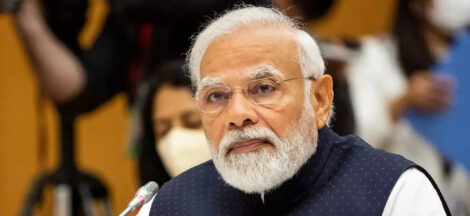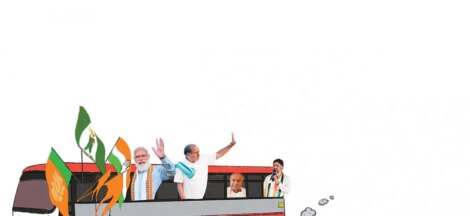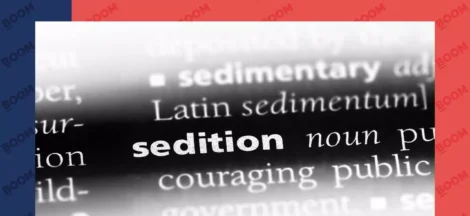By Nilanjan Banik and Pierto Paganini
We are passing through an interesting time. There is a likelihood that trade war between two of the world’s biggest economies – China and USA – may blow out of proportion. The consequence may be another economic downturn in the offing. During an economic crisis, consumers spend less, and investors do not invest (or postpone their investment decisions). There is a general sense of pessimism about future earning prospects, leading to higher unemployment and lower productivity growth.
The previous economic crisis of 2008 did not persist that long (in comparison to the Great Depression of 1929) thanks to the coordinated efforts of the central bankers in Europe and in the US. Quantitative easing helped stave off consumer pessimism. China also played a constructive role by controlling its foreign exchange reserve. During 2015-16, rather than spending foreign exchange reserves on other economies, China made sure that the precious dollar is spent in its home. Taxes on consumer durables such as cars were slashed. All these revived Chinese demand and its manufacturing grew. Back in Europe, major economies were able to contain public debt (as part of austerity measure), and all these efforts were instrumental in reviving the economies around the world.
But, maybe, no more. Countries around the world are increasingly resorting to protectionist measures, something not good for future economic growth. In order to understand what factors lead to a crisis, we have to step a little back into history. Soon after the Second World War, when Europe was devastated, policymakers in the region wanted to re-build Europe on the premise of socialist capitalism. The underlying idea is that when the market is at a nascent stage, the state will ensure that a labour market comes into play and jobs become available. For the elderly, and those without jobs, the state will take care through a benevolent social security system — paying unemployment benefit and pensions.
The objective is noble, but to make the system efficient the government has to ensure that it collects funds through taxation to pay dole for the unemployed and pension for the retired. Dole and pension are expenditures for the government, and to pay for it, the government has to collect taxes.
The principal source of tax is corporate income tax (contributing to nearly 80 per cent of the total tax collection), indirect tax (such as excise and service tax) and direct income tax (that is, taxing the working class).
At the time of recession when businesses are not forthcoming, or when people find it hard to get a job, it is quite natural that tax collection will be inadequate. Therefore, the government will meet its welfare objective (that is, to pay for dole and pensions) by printing money or by borrowing. Both are perfect recipes for increasing the budget deficit and the public debt.
A higher budget deficit can be sustained, provided the economy is growing. With countries around the world, including those in Europe going for ultra-right jingoistic path, the probability of economics wining over politics is increasingly becoming less. This new wave of country first with total disregard to trade/economic specialisation may delay institutional reforms. In a socialist capitalist structure, wages are protected by trade unions. This is irrespective of labour productivity and firms’ ability to earn profit.
A natural suggestion would be to reform the labour and pension laws (dubbed as austerity measures), and slacken the immigration laws. But, if the recent poll results are any indication, it seems voters would rather punish the parties in favour of austerity measures.
Take the case of Italy. Just a few days ago a new government was installed that openly defines itself as populist. The two political parties that make up the Yellow-Green coalition maintain they have really understood the people’s problems, which is something the traditional political forces have not been capable of doing.
The Italian electorate which, through their protest vote, have chosen to ignore a return to economic growth, after years of depression (1.5% GDP in 2017), a fall in unemployment (11.2%) – above all among young people (18-25), a better control of public debt, and more substantial foreign investments. The jobs market is excessively fragmented and deregulated. Salaries remain stagnant, whereas the gap between the so-called 1% of the population, the elites indeed, and the so-called forgotten has widened. It is a problem that is common to many EU countries.
A closer look at European democracies suggests it is run by the insiders made up of pensioners, trade union leaders, public sector workers and big farmers. The outsiders consisting of small numbers of immigrants, the youth and small private entrepreneurs have little say. It is a classic case of a socialist democracy in which the insiders are myopic, care too much about present benefits, and are deliberately voting parties to power that support their cause. On the contrary, the outsiders are quite powerless.
Even issues such as changes in labour immigration laws are stalled. A flexible labour immigration clause is expected to resolve issues related to the dearth of a young skilled labour force. The brain drain from developing countries such as India and China has helped fuel economic growth in the US, but not in Europe.
Besides, dissimilar macro-economic conditions (reflected in the debt-GDP ratio) may even threaten the existence of the European Union (EU). This is because it renders a common macro-economic policy — expansionary monetary/fiscal policy during a recession and contractionary monetary/fiscal policy during an expansion — ineffective. But Europe is diverse, and when Greece is facing recession and Germany is doing well, then following an expansionary monetary policy may help Greece but will heat up the German economy.
It will be to Europe’s benefit if the nations prepare themselves for austerity measures and institutional reforms. Otherwise, like Argentina during the 80s and Japan during the 90s, a lost decade will be a reality for Europe and rest of the world. (IPA Service)
Nilanjan Banik is with Bennett University, India; Pierto Paganini is with Competere, Italy.
The post A Global Economic Crisis Is Brewing appeared first on Newspack by India Press Agency.


